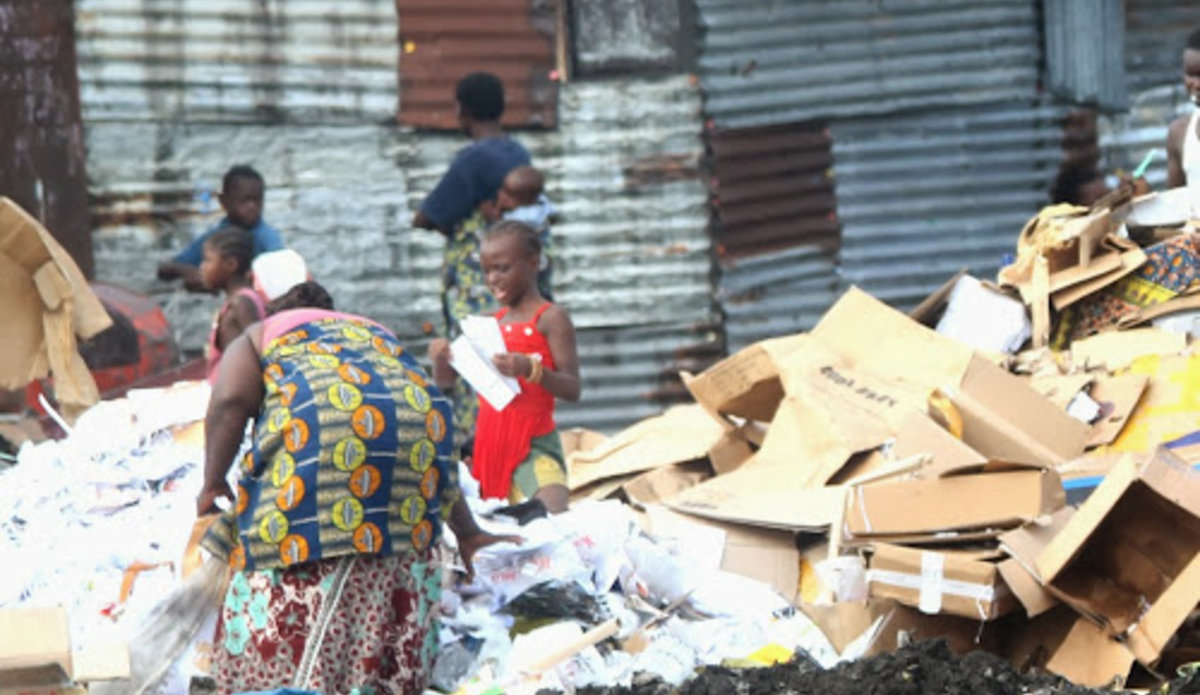International Day for the Eradication of Poverty – Tuesday 17 October 2017: World is ignoring human rights of poor despite disproportionate abuses – UN expert
GENEVA (16 October 2017) – The world’s poor are at disproportionate risk of torture, arrest, early death and domestic violence, but their civil and political rights are being airbrushed out of the picture, UN Special Rapporteur on extreme poverty Philip Alston has warned in a hard-hitting statement to mark International Day for the Eradication of Poverty on 17 October. Even human rights groups are failing to draw the link between civil and political rights violations and poverty. Alston, who will report on the issue to the General Assembly later this month, said it was shocking that on the 25th anniversary of the international day, so much remained to be done:
“If you are a victim of torture, the chances are significant that you are also poor. The same applies if you are a woman or a child who is a victim of domestic abuse.
As a poor individual, you are more likely to be arrested and prosecuted for crimes and, if you are, you are less likely to be able to afford a lawyer. The poor experience additional barriers when they want to vote and often have virtually no influence on political decision-making.
In short, people in lower socio-economic classes are much more likely to get killed, tortured or experience an invasion of their privacy, and are far less likely to realize their right to vote, or otherwise participate in the political process.
Development and human rights organizations, as well as Governments, mostly ignore violations of the civil and political rights of the poor, with terrible results.
Key international agencies, such as the World Bank and the OECD, ignore human rights altogether and have paid no attention to the specific civil and political rights of those living in poverty.
Even those working in international human rights, including many UN Special Rapporteurs, experts, groups and committees, often focus on civil and political rights violations without dealing with the fact that these are interlinked with poverty.
The same applies to international human rights NGOs. Analytical work like the 2006 report by the World Organization Against Torture (OMCT) on the root causes of torture is the proverbial exception that proves the rule.
Airbrushing the civil and political rights of the poor out of the picture has taken several forms.
Firstly, human rights organizations have assumed that poverty can be explained exclusively by various forms of discrimination. But the use of a surrogate lens is clearly inadequate for capturing the very specific consequences of the varied forms of discrimination, oppression, stigma and violence experienced by many of the poor on a daily basis.
Secondly, virtually all Governments, UN human rights bodies, and human rights organizations have ignored the fact that key provisions in all major human rights treaties prohibit discrimination of any kind on grounds of social origin, property, birth or other status.
The result is that discrimination based on socio-economic class is hardly ever part of any analysis.
I call for a new approach by the human rights community, the development community and Governments that gives due attention to how often and how exactly the civil and political rights of the poor are violated.
It is for everyone involved to determine how that goal can best be achieved, but a key starting point is to begin collecting data.
So little is known about how the poor are differently and disproportionately affected by civil and political rights violations, that no sensible response can be expected without more knowledge of its root causes.
All of us who advocate for people’s human rights to be respected, whether from within the UN system or any other group or organisation, must be part of painting the poor back into the picture, closing the knowledge gap and rededicating ourselves to the search for solutions to their disproportionate suffering.”
ENDS
Mr. Philip Alston (Australia) took up his functions as the Special Rapporteur on extreme poverty and human rights in June 2014. He is John Norton Pomeroy Professor of Law at New York University School of Law. Mr. Alston has previously served the UN in several capacities including as Special Rapporteur on Extrajudicial, Summary or Arbitrary Executions, Special Adviser to the UN High Commissioner for Human Rights on the Millennium Development Goals, as well as chairperson of the UN Committee on Economic, Social, and Cultural Rights.
As a Special Rapporteur, he is part of what is known as the Special Procedures of the Human Rights Council. Special Procedures, the largest body of independent experts in the UN Human Rights system, is the general name of the Council’s independent fact-finding and monitoring mechanisms that address either specific country situations or thematic issues in all parts of the world. Special Procedures’ experts work on a voluntary basis; they are not UN staff and do not receive a salary for their work. They are independent from any government or organization and serve in their individual capacity.
For more information and media requests, please contact Ms. Junko Tadaki (+41 917 9298 / jtadaki@ohchr.org) or write to srextremepoverty@ohchr.org
For media inquiries related to other UN independent experts please contact:
Bryan Wilson – Media Unit (+ 41 22 917 9826 / mediaconsultant2@ohchr.org)
Concerned about the world we live in? Then STAND UP for someone’s rights today #Standup4humanrights and visit the web page at http://www.standup4humanrights.org/en/
 UN
UN United Nations Peacekeeping
United Nations Peacekeeping




